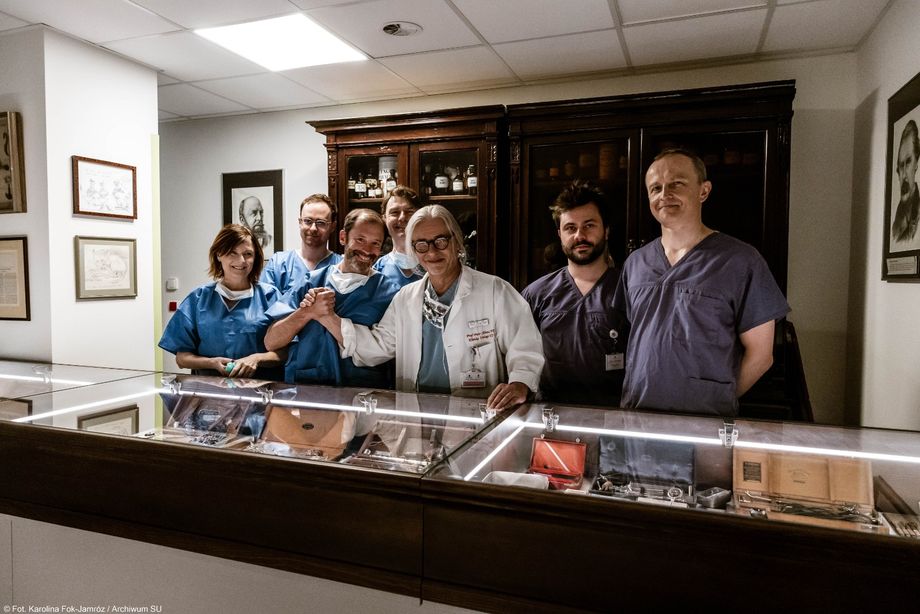
The latest procedure performed at the JU University Hospital in Kraków is a welcome piece of news for men affected by incontinence. On 10 April, a team of doctors led by Prof. Piotr Chłosta implanted an electronic hydraulic urethral sphincter into the body of a patient. It is the first procedure of its kind in Poland and only the second in Europe. It was carried out within the framework of an ongoing clinical trial.
‘Incontinence in men and women is a major social issue and a cause of significantly lowered quality of life. It affects patients three-fold: medically, economically and psychosocially’, said Prof. Piotr Chłosta, head of the Clinical Department of Urology and Oncological Urology at the University Hospital in Kraków. ‘Medically, aside from being a handicap, it leads to a higher risk of urinary infection, forcing the patients to treat symptoms instead of the cause. Economically, it requires the state to provide a lot of funding for methods of treatment that are much more inferior than minimally-invasive surgery. Finally, from the psychosocial standpoint, patients may feel compelled to withdraw from their professional and/or social life. There is no medicine that can alleviate these problems, particularly if the sphincter is severely damaged. The only solution for a certain group of patients is a surgical procedure, including implanting a sphincter’, he added.
According to the University Hospital in Kraków, the implanted device is a mechanical, hydraulic sphincter, entirely based on electronic components. Its concept is very similar to a pacemaker. It takes over the role of the urinary sphincter, allowing for full control over the process of urination, including voiding and filling the bladder at any time. The artificial sphincter was designed during a clinical trial as part of a Polish-French collaboration. It was developed by experts from the University Hospital in Kraków as well as engineers. As of now, it is only compatible with male patients.
‘The breakthrough nature of the procedure lies in the fact that it was the first one to make use of the latest developments in uro-technology, such as the electronic urinary sphincter. The surgery was observed by our French partners, both professors of urology and engineers, and they were quite impressed with both our staff and equipment. I think it’s yet another step forward in our ever growing collaboration’, said Prof. Chłosta.
The professor expects the procedure will become available to the general public in two years. Currently, it is still in the last stages of the clinical trial, though so far the results look very promising. ‘I have no doubt that the device is safe, effective and compliant with the highest modern standards in uro-technology. It’s a revolution happening before our eyes, a proof of the dynamic development of urinary tract surgery. For urologists, it represents elegant solutions and new challenges, while for patients, it means efficacy, safety and the return to normal life’, explained Prof. Chłosta.

Prof. Piotr Chłosta and his team (photo by Karolina Fok-Jamróz / University Hospital in Kraków Archives)





